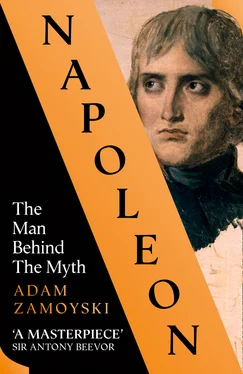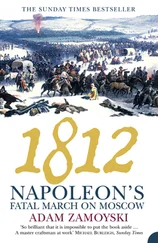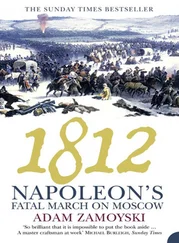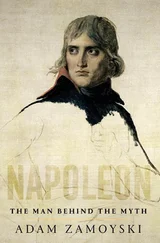According to Barras she had set her cap at Hoche, but he was married, and had allegedly commented that ‘one could take a whore as a mistress for a time, but not as a legitimate wife’. It seems that Barras then suggested she marry Buonaparte. She was not taken with the idea, allegedly saying that of all the men she might bring herself to love, this ‘puss in boots’ was the last, and objecting that he came from ‘a family of beggars’, even though he was by then showering her with presents. Barras encouraged the match, partly in order to establish her on a respectable footing, perhaps also to tighten his grip on the useful young general, who was growing alarmingly independent.15
Buonaparte had begun to do as he pleased, appointing and cashiering officers, reorganising units, and extending his brief beyond military matters. He called on the Directors almost daily, not so much advising them as telling them what to do, and castigating them for their incompetence. When they reproved him for acting in an arbitrary manner, he reputedly countered by saying it was impossible to get anything done if one were to stick to the law, and he usually managed to get them to see things his way. Getting Buonaparte settled might make life easier for the Directors. Barras advised him that ‘a married man finds his place in society’, and that marriage gave a man ‘more substance and greater resilience against his enemies’. Most people thought he was merely trying to park an unwanted mistress, and the Marquis de Sade would publish that version, thinly veiled, in his Zoloé et ses deux acolytes .16
Buonaparte was not as fussy as Hoche. He allegedly told Barras that he did not like the idea of seducing a virgin, and preferred to find ‘ l’amour tout fait que l’amour a faire ’, in other words the ground well prepared. Whether those really were his words or not, there is a ring of truth about what they expressed; such cynical bluster is characteristic of the sexually insecure.17
The first extant letter from Buonaparte to Josephine is undated, but it was written at seven in the morning, probably in the second half of December 1795, and almost certainly after their first night of love. ‘I have woken full of you,’ he wrote. ‘The picture of you and the memory of yesterday’s intoxicating evening have left no rest to my senses. Sweet and incomparable Josephine, what a strange effect you have had on my heart!’ He goes on to say that he cannot stop thinking about her and what she is doing, and cannot wait to see her again, in three hours’ time. ‘Meanwhile, mio dolce amor , a million kisses from me; but do not give me any, as your kisses set my blood on fire.’18
The incomparable courtesan had clearly given him his first pleasurable amorous experience. ‘It was, it seems, his first love, and he experienced it with all the intensity of his nature,’ noted Marmont. He also noted something else. ‘What is incredible, and yet absolutely true, is that Bonaparte’s vanity was flattered,’ he wrote, explaining that for all his republican talk, the young general was beguiled by the social grace of the old nobility, and that in the company of the former pseudo-vicomtesse de Beauharnais he felt as though he had been accepted into its charmed circle; he was not Carlo Buonaparte’s son for nothing. Josephine fed Buonaparte’s social aspirations with talk of her estates in Martinique, cleverly disguising her penury and hinting at great wealth. She had taste and flair, and had managed to create a sense of elegance in the little house on the rue Chantereine with the few sticks of furniture and meagre ornaments she possessed, and despite the chipped assorted china and unmatched flatware her dinners exuded refined aristocratic ease. The house itself, designed for the philosopher Condorcet by Claude Nicolas Ledoux, was an intimate retreat, reached by a narrow walled lane, a refuge from the political turmoil of the capital. Buonaparte felt well there not just on account of his love for Josephine. He quickly captivated her two children, the fourteen-year-old Eugène and the twelve-year-old Hortense. They had begun by resenting his intrusion, but gave in when he started telling them ghost stories and playing with them. Still something of a child himself, he had found a home in Paris.19
Josephine was unsure about this third child. ‘They want me to marry, my dear friend!’ she wrote to a confidante. ‘All my friends urge me to, my aunt almost orders it and my children beg me to! “Do you love him?” you will ask. – Well … no. “So you find him unappealing?” – No, but I find myself in a state of tepidity which I find unpleasant …’ She goes on to say that she feels she should feel greater ardour: ‘I admire the general’s courage, the extent of his knowledge in all things, of which he speaks equally well, the agility of his mind, which allows him to seize the thoughts of others almost before they have expressed them; but I am fearful, I confess, of the control he seems to wish to exert over everything around him. His piercing look has something about it quite mysterious which impresses even the directors: you can judge for yourself how it intimidates a woman!’
What seems to have bothered her most was his ardour. His various sexual encounters to date had evidently left him cold, and what he experienced with Josephine had opened up a gamut of new sensations and unlocked feelings he had either never known, or had repressed with all the vehemence with which he had lambasted his friend des Mazis at Valence. ‘Above all,’ continues Josephine, ‘that which should please me, the strength of a passion of which he speaks with a force which does not permit any doubt as to its sincerity is precisely that which holds back the consent which I am often ready to give. Having passed my first youth, can I hope to preserve this violent love which, in the general’s case, resembles an access of madness?’ She also found it faintly ridiculous to be the object of adoration of a younger man. She was astonished at his ‘absurd self-confidence’, while admitting that at moments she believed him capable of anything. Her friends encouraged her, and Barras reassured her that he would soon be sending the young general off to war to cool his ardour.20
By then the coalition against France was in poor shape: Tuscany, Prussia, Holland and Spain had dropped out and made peace. Only Austria, Britain and Sardinia were actively pursuing the war. On 31 December an armistice was signed with Austria, but it was expected that hostilities would resume in the spring, and Buonaparte had pronounced ideas on how they should be conducted. Although he was now in command of Paris and the interior, he could not help meddling in overall strategy, to the annoyance of most of the Directors.
Buonaparte’s plan for a two-pronged attack on Vienna, to be delivered through Germany by the Army of the Rhine under General Jean-Victor Moreau and through the Tyrol by the Army of Italy, had been sent to the relevant commanders in September 1795. It had been ridiculed by General Kellermann, who had succeeded Dumerbion at the Army of Italy, but was implemented by General Scherer, who had replaced him in command. He carried out the first stage successfully, but then, instead of moving on as prescribed, came to a standstill, pleading insufficient strength and the low morale of his troops. In January 1796 Buonaparte produced an amended version of the plan, but this too met with a critical reception, and one of the commissioners attached to the Army of Italy protested at orders being sent by ‘project-mongers’ ‘gnawed by ambition and greedy for posts above their abilities’, ‘madmen’ in Paris who knew nothing of the realities of the situation on the ground yet thought they could ‘seize the moon with their teeth’. Scherer tendered his resignation.21
Читать дальше












